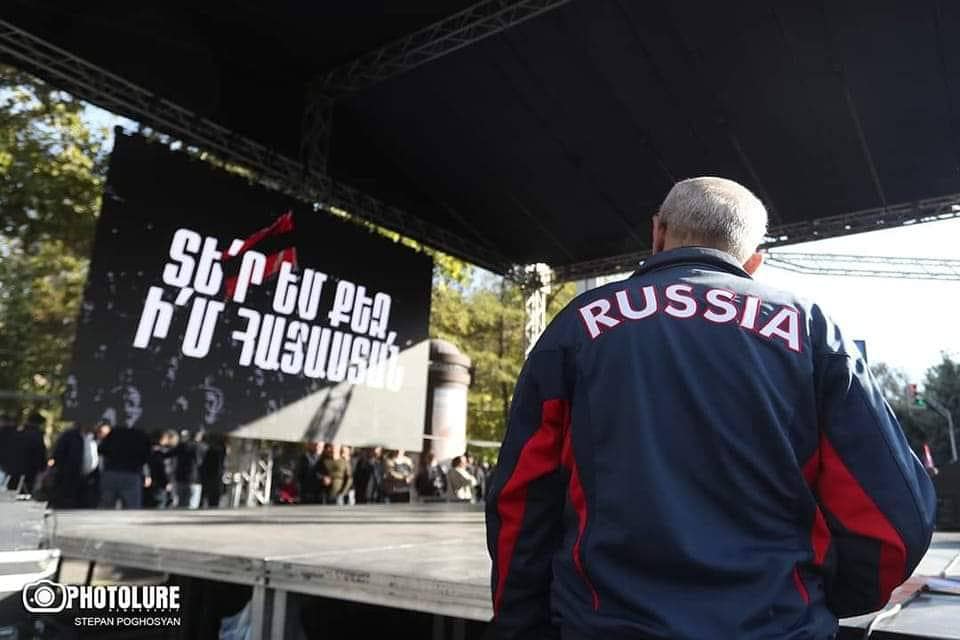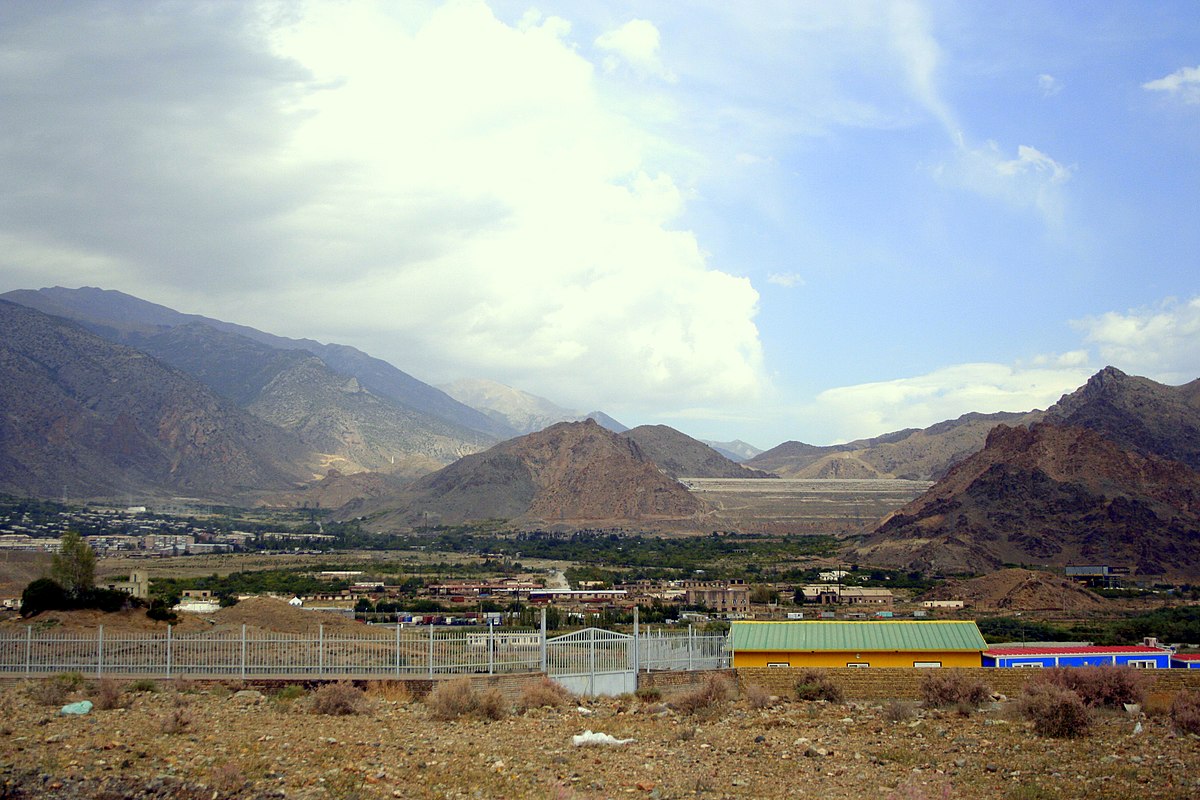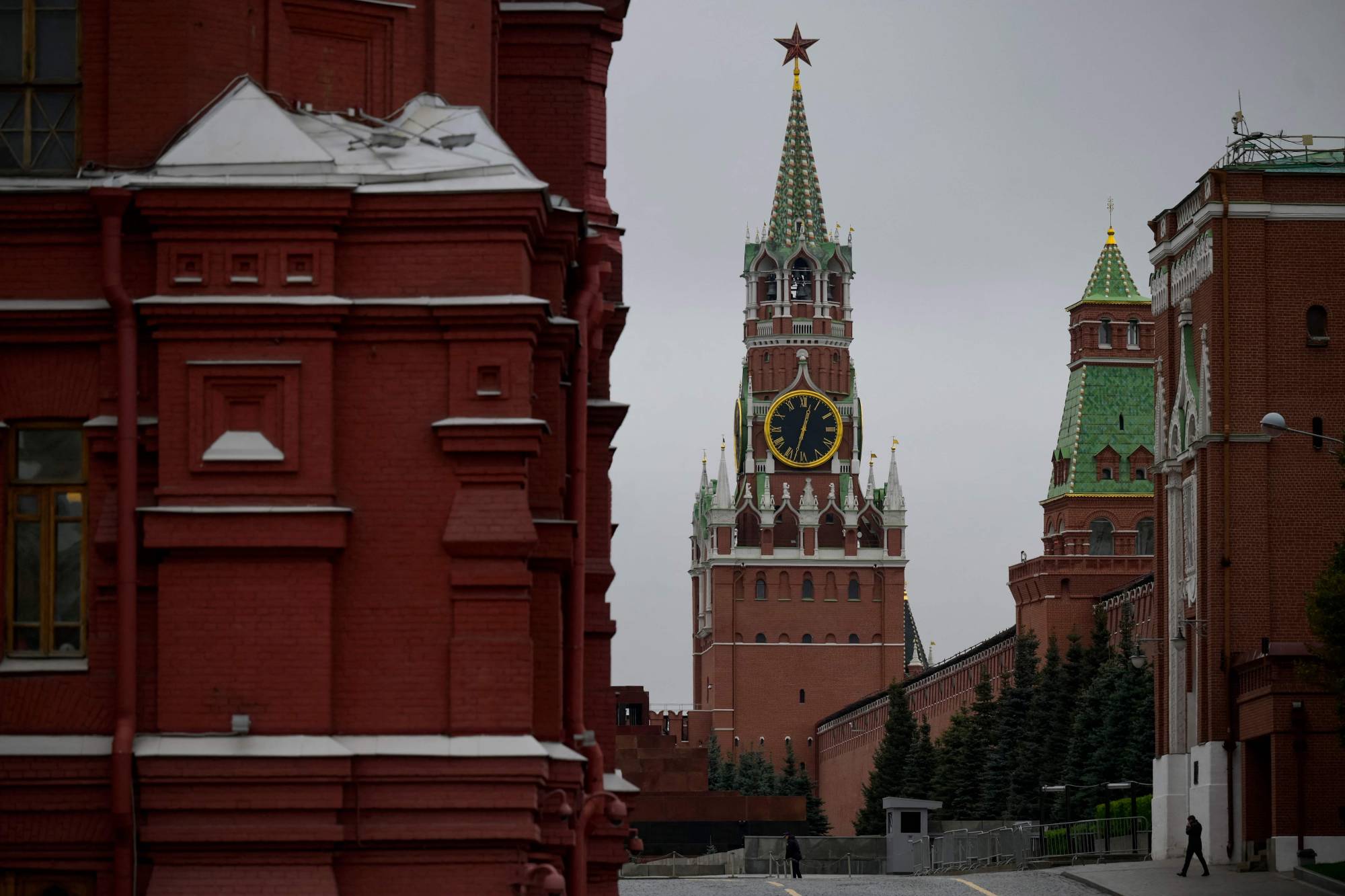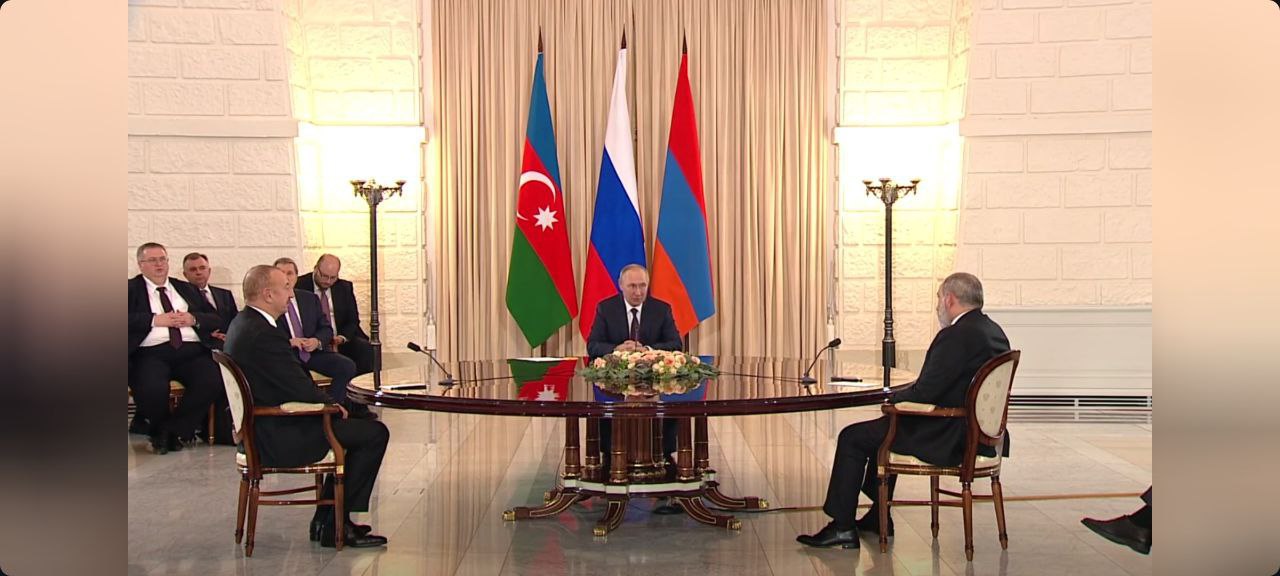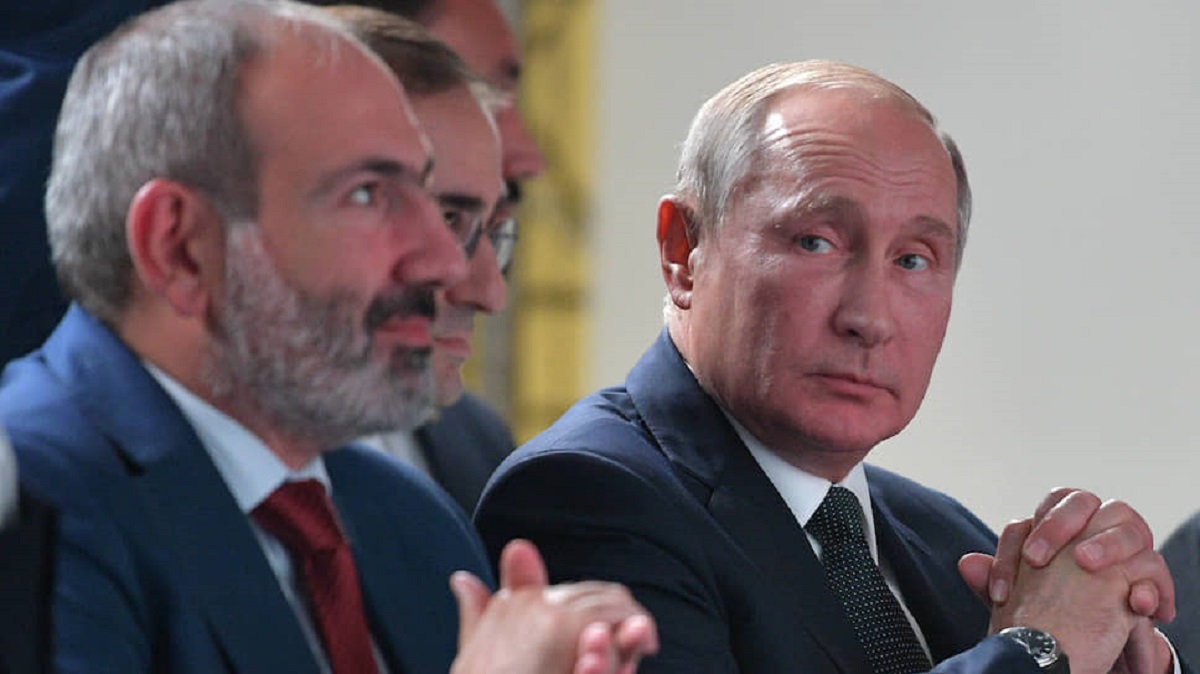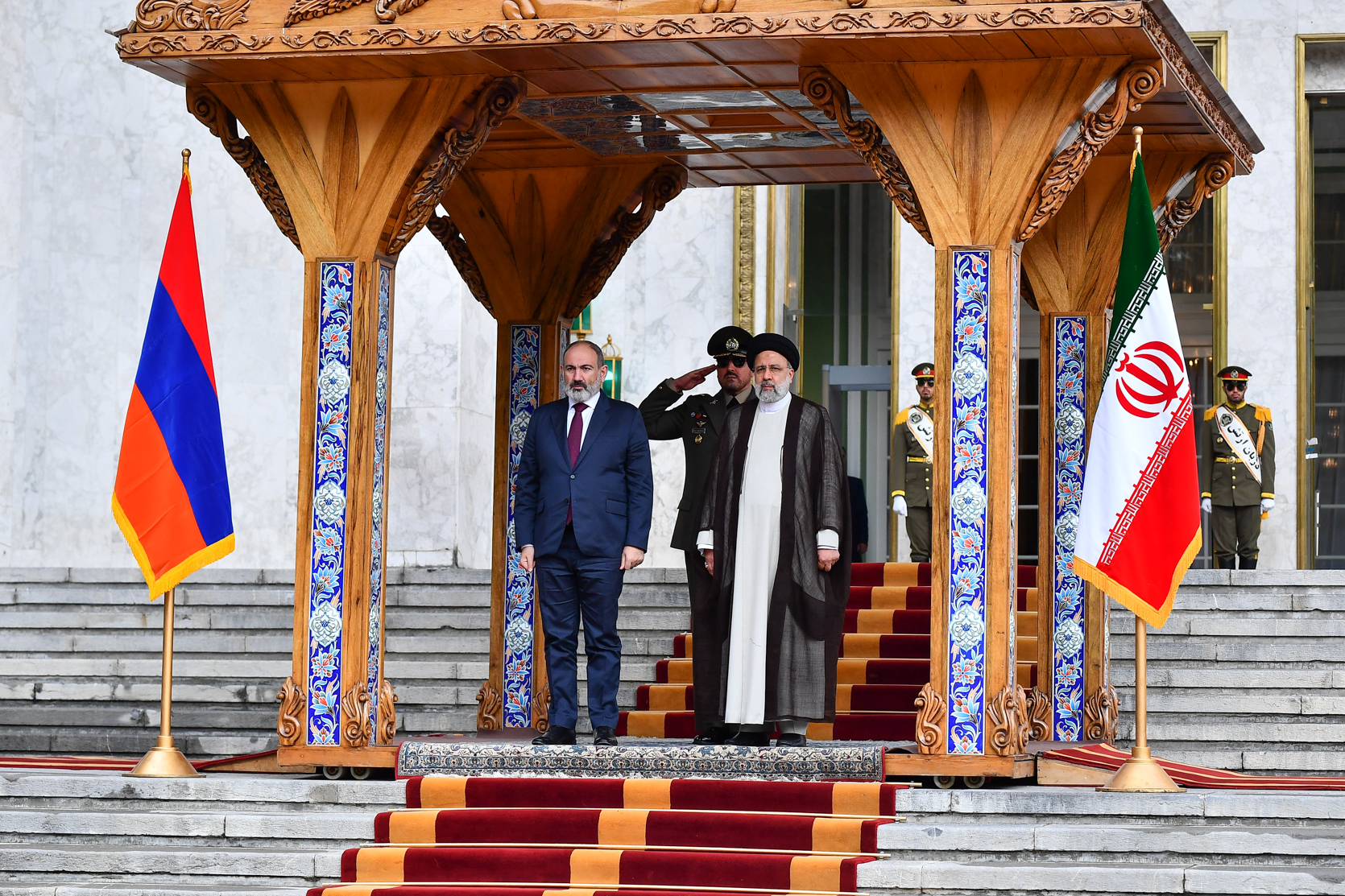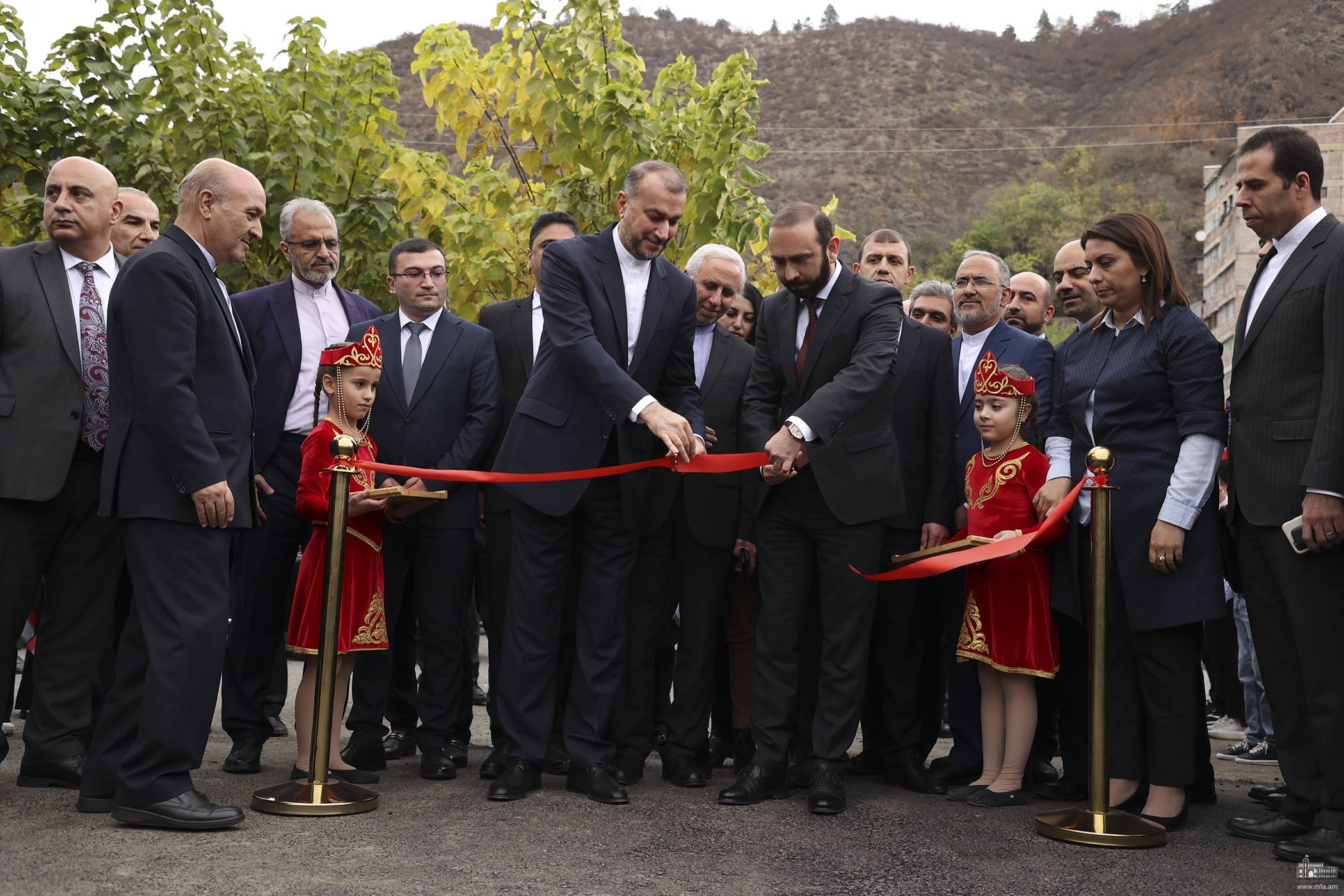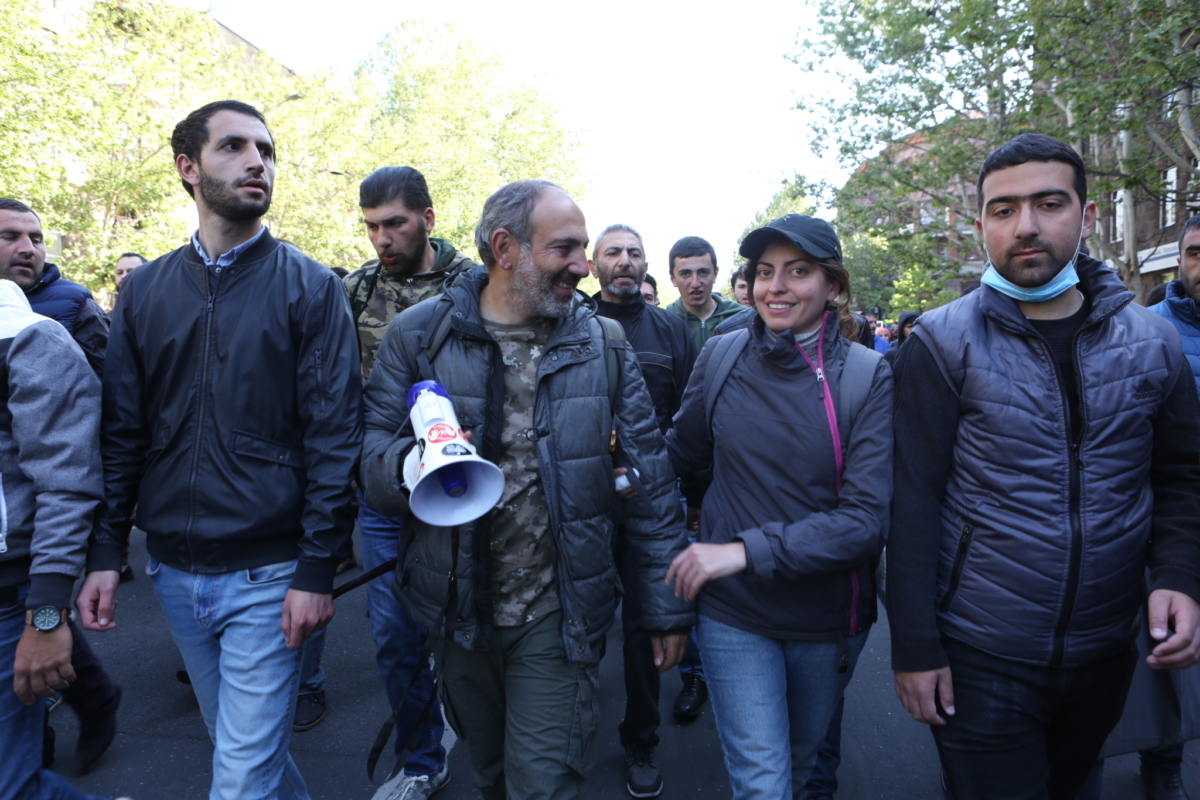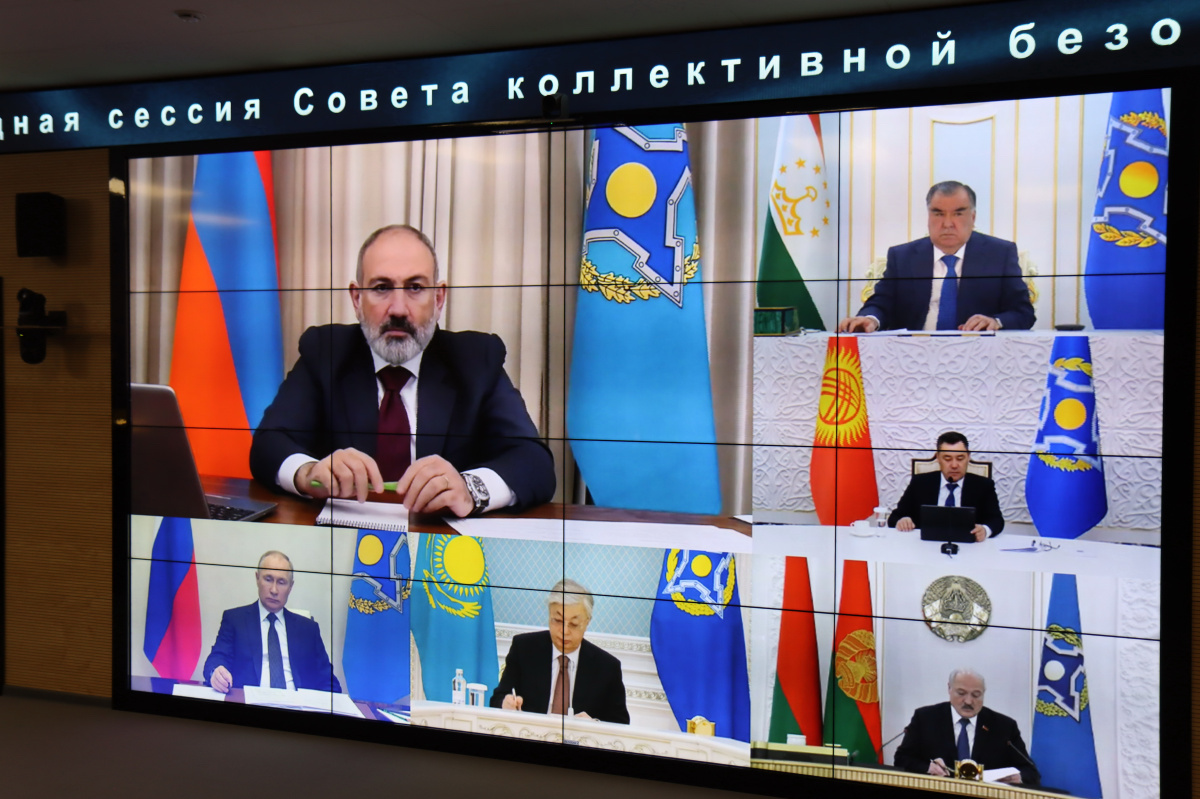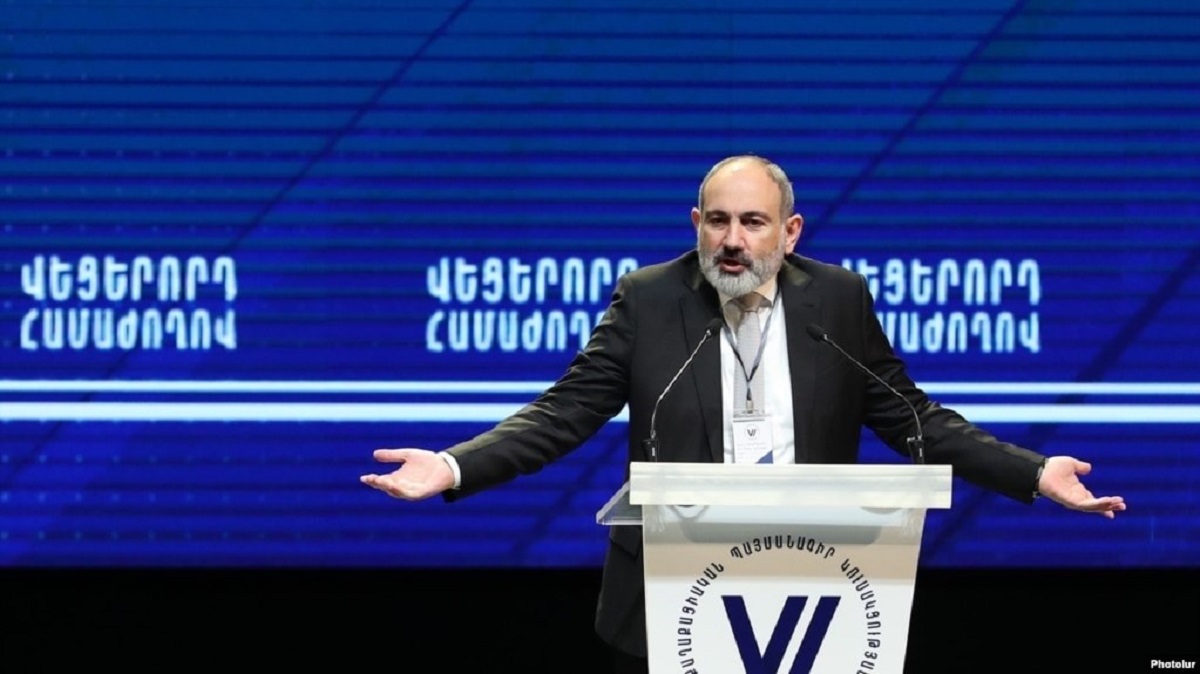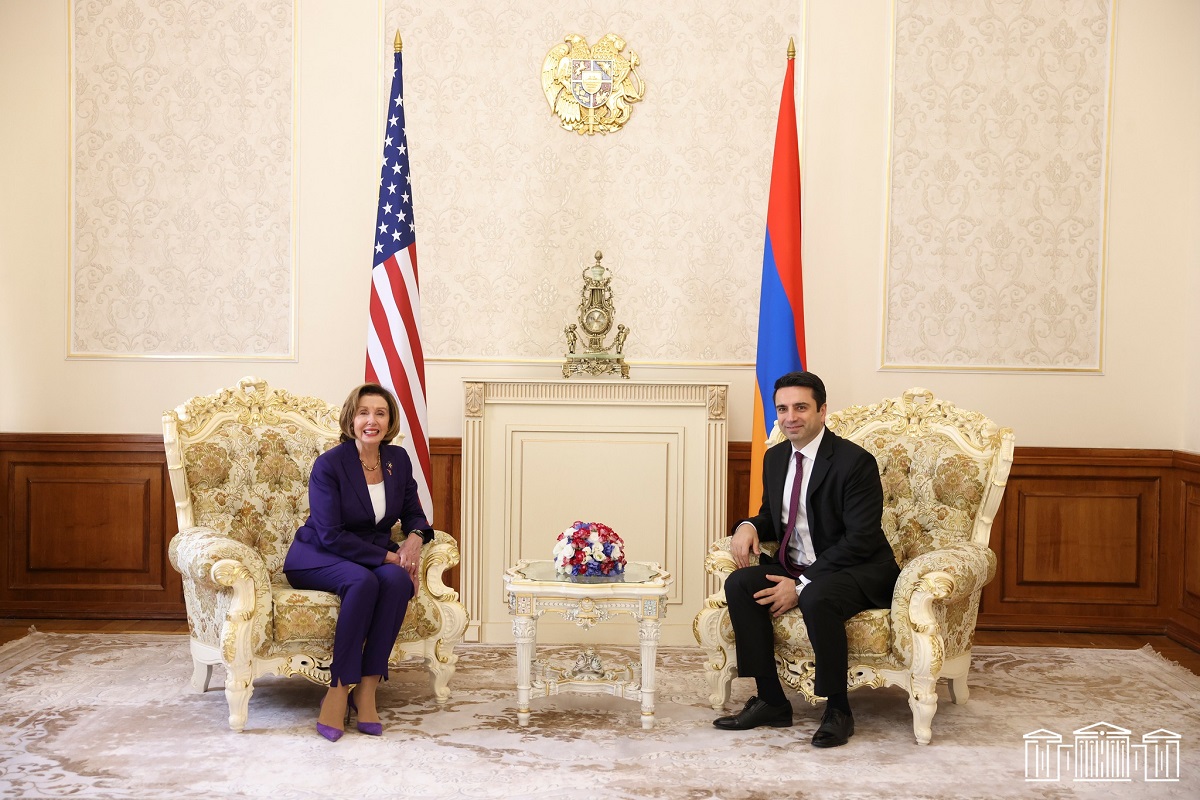"Staying with Russia is a greater risk for Armenia than alliance with the US." Opinion
Peace Treaty Armenia-Azerbaijan
The process of preparing a peace treaty between Armenia and Azerbaijan is entering the home stretch. Experts believe that there are no serious obstacles to its signing. The Armenian government stated that they are inclined to sign the agreement by the end of the year and that “the approaches of the Russian project” to normalize relations with Azerbaijan are acceptable to them.
After the official announcement on October 31, a meeting between Pashinyan, Putin and Aliyev took place in Sochi. Thereafter a joint statement was adopted, but in its text there were no answers to questions of concern to Armenian society, including about the Karabakh conflict. Putin admitted that “some things had to be removed” from the text, and work on unresolved issues will continue in private.
There is a growing consensus that the Yerevan-Moscow-Baku negotiation format is not just bad, but dangerous for Armenia, and it is necessary to change foreign policy course and build strategic relations directly with the United States.
Commentary on the foreign policy of the Armenian government and the expected signing of a peace treaty with Azerbaijan.
- Armenia and Azerbaijan peace treaty in Tbilisi: is it possible?
- “What will happen next, life will show” – Ilham Aliyev on the situation in the negotiations with Armenia
- “Veiled threat” – Armenian political scientist on the statements of Maria Zakharova
- «Мы все солдаты на защите родины» – бизнесмен, который стал госминистром
Lilit Grigoryan, CIS expert (London)
The authorities cannot go against Moscow
“Armenia unilaterally yielded to Azerbaijan in almost all issues, in this situation the signing of a peace treaty is possible. There is practically no organized internal political resistance in Armenia, despite the fact that most people are dissatisfied with the chosen path, and many consider it to be dangerous. A spontaneous action after Pashinyan’s statement that he intends to sign a peace treaty turned into a fiasco for the opposition due to its disorganization.
And the Armenian political elite, which has long ceased to represent the majority of the population, has no desire to resist the process being imposed on it, as this would mean going against Russia as well.”
Moscow and Baku transform the conflict in Syunik
“Azerbaijan has chosen a maximalist tactic in the negotiation process — it puts forward excessive demands in order to pretend that it is inferior in some way. And Pashinyan will use it later; he will say that Baku has made concessions.
Now Azerbaijan and Russia insist that the peace treaty provides for the alienation of transit roads and their transfer to the FSB of the Russian Federation.
Though Armenia previously proposed unblocking roads so that Armenians and Azerbaijanis could use all the roads of both countries, now Armenia is taking it upon itself to unilaterally provide roads to Azerbaijan.
Control over them may eventually pass to the Russians. Pashinyan recently stated this in Sochi, referring to the tripartite statement on Karabakh dated November 9, 2020. And, regardless of whose proposals (Russians / Azerbaijanis or Armenians) are accepted, with this agreement, Russia and Azerbaijan will automatically transform the conflict into Syunik [the southern region of Armenia bordering Azerbaijan].
Russia is forming a new function for itself in this strategically important region, controlling both part of the Armenian-Azerbaijani border and the roads that the Azerbaijanis will use.
And the Azerbaijanis, who are already openly presenting their claims to Syunik and other regions of Armenia, in the future, under the pretext of securing the same “corridors” in the south of Armenia, by agreement with Russia, can establish their joint control with the Russians.”
Peace Treaty Armenia-Azerbaijan
Russia’s new club
“And most importantly, Russia has a new lever of pressure on Armenia: at the slightest undesirable step, strategic Armenian territories will instantly be under the thumb of Azerbaijan or even under its control, as happened in September this year.
The only obstacle to the signing of a peace treaty is Azerbaijan itself, since it does not really want the end of the conflict, evident both from the September invasion of Armenia, and from the rapid rearmament of the troops.
The total ignorance of the Armenian political elite, the lack of resistance on their part, as well as regional developments, especially in Iran, can open up new opportunities for Baku.
Since the ’90s, a certain part of the Armenian political elites has been convincing themselves and the society that the Artsakh issue can be resolved through concessions from Armenia – and then we will come to peace. Azerbaijan has always had other ideas, and not only in terms of NK, but also in terms of Armenia itself.
The continuation of Artsakh is Syunik, and this goal today seems more than achievable to Baku, which increases the likelihood of a new war.”
The agreement is not valid
“The “peace” treaty imposed on Yerevan by Moscow and Baku is not a compromise document. This is a document formulated by Azerbaijan on the humility and subjugation of Armenia, and it is being imposed on Armenia through the use of military force.
International documents signed under threat violate the International Convention on Treaties, which makes them illegitimate.
This agreement is based solely on the tripartite November 2020 statement, which Putin admitted to writing himself. Moreover, Aliyev expressed his gratitude to him, stating that “without Russia it would be impossible to achieve the consent of Armenia.”
Azerbaijan solves its issues by force, which is prohibited by international law.
In fact there is no Western, Russian or European plan. There is one document drawn up in Baku, and Armenia accepted it. This is a consolidation of the results of the aggression of 2020.
It defines a new regional reality with the end of the OSCE Minsk Group, or rather Western partners, which Russia and Azerbaijan have been striving for for many years.”
Follow us – Twitter | Facebook | Instagram
The goal is to stay in power
“Armenia had the opportunity not to accept such coercion, but this means that the Pashinyan team would create problems with Moscow in terms of maintaining their own power. To counter such coercion, Pashinyan needed new allies who could contain Russian and Azerbaijani pressure.
The Armenian authorities had to develop a strategic plan and make a serious political calculation. Instead, Pashinyan chose the Azerbaijani-Russian plan, framing it as a “peace treaty” and presenting it as the wish of Armenians as well.
Instead of working closely with the United States, Pashinyan chose the Brussels platform, the most convenient one for legitimizing the “peace” treaty. Brussels has no serious ambitions to change the new realities in the region or reduce Russian influence here, especially since Armenia supports this plan of humility. The EU simply hopes that the treaty will reduce the likelihood of war.
Pashinyan, his supporters and that part of the political elite who were convinced that, having surrendered Artsakh, they would no longer have problems with Azerbaijan, now cannot understand
- why the Azerbaijani troops reached Jermuk [an Armenian city that was badly damaged during the hostilities in September],
- why Pashinyan is not given time to sign this agreement, to which he himself is so committed.
Aliyev’s aggressive haste is a threat to Pashinyan’s power, and these domestic political calculations are perhaps more important for him.”
The fate of Nagorno-Karabakh
“The Pashinyan team no longer puts forward the Artsakh issue as preconditions for the “normalization” of relations with Azerbaijan. This is a blow to Artsakh. Here the Armenian prime minister satisfies the demands of Azerbaijan, Russia and Turkey. The Armenian authorities and experts affiliated with them talk about the unrealistic substantiation of Artsakh, or the “Kosovoization” of Artsakh.
This is a misleading notion that completely ignores a more important factor in the Kosovo issue than international law — America’s role. They do not take into account that Artsakh is under the control of Russian troops, and under such conditions recognition of the independence of Artsakh by the West is unrealistic.
This provision creates a discourse about the double standards of the West in relation to Armenians, which is used by Moscow when it tries to convince Armenian society that there is no alternative and that the struggle is pointless.
Armenia surrendered the people of Artsakh to the Russians and Azerbaijanis. While the team of Levon Ter-Petrosyan [the first president of Armenia] has this clear political conviction, the teams of Kocharyan-Sargsyan [two other ex-presidents, both considered pro-Russian politicians] are politically unable to offer an alternative in a new reality where Russia supports Baku.”
Peace Treaty Armenia-Azerbaijan
Armenia faces major security challenges
“Artsakh is a small bargaining chip for Moscow, which, in all likelihood, will be used in order for Baku to extend the mandate of Russian troops.
In return, Baku will demand the disarmament of the Defense Army and the integration of Artsakh. For Baku, this is more profitable than organizing a second campaign for the ethnic cleansing of Armenians.
Russia needs Nagorno-Karabakh for its gradual transfer to Azerbaijan. This will allow Moscow to have at least some levers of influence on Baku for the next few years. Russia will try to involve Baku in some integration programs.
The future of Artsakh depends on the degree of sovereignty of Armenia, on its geopolitical choice and military power. The Artsakh issue in the regional format Azerbaijan-Iran-Russia-Turkey has only one solution — absorption by Azerbaijan.
If Armenia remains in this regional format, then for Armenia we can expect:
- serious security challenges,
- an even deeper systemic crisis,
- a weak domestic political field, split between various regional powers, as well as business circles supervised from Baku.”
Imitation of “pro-Westerners” and the vulnerability of Armenia
“Armenia has ratified an agreement on a joint information policy with Russia. This strengthens the positions of the Russian media, as well as the mechanisms of control in the information field.
The ban on the entry of Konstantin Zatulin to Armenia should be considered in the context of protecting the interests not of Armenia, but of Pashinyan. He is persona non grata, in particular, for Pashinyan. If the authorities are really concerned about the Russian hybrid war, then at the very least they should limit the activities of Russian media in Armenia.
Here, the coordinated actions of pseudo-Western and pseudo-Pro-Western activists and parties become more and more obvious. This is not a new phenomenon, its roots were put down under Serzh Sargsyan, and I think Pashinyan belongs to this political subtype.
Such political forces can periodically take formal pro-Western or anti-Russian steps, but in the most important issues they always satisfy Moscow’s demands. When the Speaker of the Armenian Parliament Alen Simonyan recently stated during a briefing that “they are the most pro-Russian authorities,” I believe he was being honest.
At least, Pashinyan’s team confirmed this with their actions, starting with sending troops to Syria, ending with participation in all Russian integration projects. And, most importantly, a deviation from a serious substantive agenda with the West, including energy independence, military cooperation and other opportunities.
The campaign to withdraw from the Russian military bloc CSTO is proof of this. A real public protest was led into a false direction by the “pro-Western” forces, then it was stated that the CSTO allegedly no longer exists – and Armenia no longer needs to leave this organization.
Meanwhile, Armenia is in a deep security crisis, because the geopolitical camp it has chosen is, in fact, working against it. Alone, in diplomatic isolation and without a security umbrella, Armenia and Artsakh have become extremely vulnerable.
Termination of membership in the CSTO, first of all, will give Armenia the opportunity to demonstrate in practice that it is seriously ready to work with the United States and receive modern weapons, and not old or secondary ones, to recreate its own army.”
Need Western support
“The current alignment of forces and the geopolitical alliance of Armenia with Russia, which is weakening and dependent on Turkey, increase the risks of a new large-scale war and new territorial concessions. This risk needs to be reduced immediately.
Pashinyan and the Armenian elite, putting aside their geopolitical biases, should soberly calculate what awaits the country if it remains in the same situation.
The latest joint statement in Sochi, which, in fact, is an Azerbaijani document of no interest Armenia, to the point that the issue of returning prisoners of war is not raised, should sober the Armenian political field up. Close Russian-Turkish relations mean even greater Turkish influence and pressure on Armenia.
If the status quo continues, Armenia will not receive military assistance from the CSTO countries against Azerbaijan, and Russia will not intervene in a direct conflict with the Azerbaijanis or the Turks for the sake of Armenia or Artsakh.
In Artsakh the Russians have no right to shoot at all, and their mandate ends in two years. In the face of deteriorating positions on the Ukrainian front, Russia itself needs weapons. The sanctions have made it harder to produce weapons, so Armenia cannot even get weapons from Russia or from the CSTO countries.
The capabilities of the Indian weapons purchased by Armenia are limited; in many respects they cannot counteract the modern weapons of Azerbaijan. But most importantly, Armenia, as an ally of isolated Russia, should no longer have false expectations that the West will seriously intervene against Baku in a new clash.
Azerbaijan conducts more flexible diplomacy. He is looking for an opportunity to get rid of the Russian presence with the help of Turkey and other regional countries. Baku may present a new attack on Artsakh or Armenia as a blow to Russian interests, thus weakening the negative reaction of the West.
Moreover, in regional terms the military strengthening of Armenia, which will become the basis for bolder decisions, is undesirable for all of its neighbors. It is simply not serious to expect that it is possible to stand on your own two feet.”
Make a strategic decision and get out of the trap
“Staying with a weakening Russia is a greater risk for Armenia than a new strategic alliance with the US. Armenia should also work with France, with the Baltic countries, and with other EU countries, especially with a number of countries in Eastern Europe.
Because of the Ukrainian war, the camp change by Armenia will be welcomed by the US. It has a good chance of dodging the treaty imposed on it, in order to clarify the issue of the reunification of Artsakh and determine the Armenian vision of a comprehensive world for the future – when Armenia becomes stronger militarily.
Such a strategic step means an attempt at the creation of a new state, which will be based on a strong army. This will have serious consequences both for Russia and especially for Azerbaijan, and there will be opposition.
Unlike the EU or other Western countries, the US is the only player who finds it easy to contain Azerbaijan both on the Armenian border and in NK.
The Russian counterstrike against Armenia will be economy and possibly terrorism within Armenia. Armenia can solve such issues on the spot with new partners if it initiates serious strategic relations with the United States and integrates into the strategic projects of the States and the West. These tasks require planning and can be done in the medium term.
Armenia has a unique opportunity to get out of the trap created immediately after the collapse of the Soviet bloc when the then current government chose the path of becoming a Russian appendage, failing to build an independent and strong state. As a Russian outpost, Armenia has become a bargaining chip that Moscow now uses for its own interests.
Pashinyan had and now has the last, already vanishing, opportunity to make a strategic decision. But it is worth emphasizing that such a decision should be clear, not half-hearted, in order for Armenia to receive full assistance from the West.
It is dangerous to involve the West in some narrow cases against Moscow. This can only give Armenia a temporary and weak airbag, and Russia an opportunity to punish disloyal Yerevan.”
Peace Treaty Armenia-Azerbaijan










